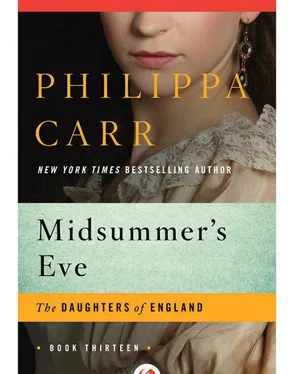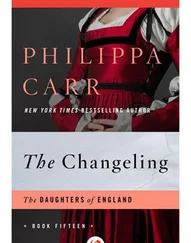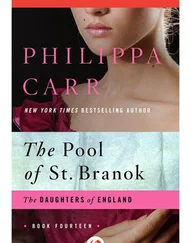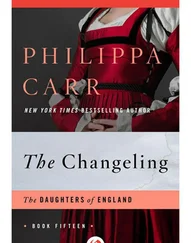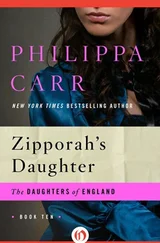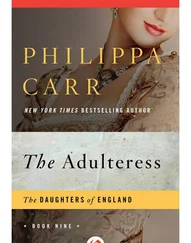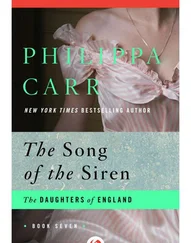“Stealing is wrong. You’ll get punished for it.”
“I don’t,” he said. “I be smart.”
“Then wait till you get to Heaven. It’s all recorded.”
“I be too smart for ’em,” he repeated.
“Not for the angels.”
He looked surprised. He picked up a stone and threw it into the river.
“Bet ’ee can’t throw as far.”
For answer I showed him that I could, whereupon he picked up another stone and in a few seconds we were standing side by side throwing stones into the water.
He turned to me suddenly and said: “’Tweren’t stealing. All fish in the sea belongs to everybody. ’Tis anybody’s for the taking.”
“Then why don’t you go and fish for it like Jack Gort?”
“Why should I when he does it for me?”
“I think you’re a very wicked boy.”
He grinned at me. “Cos why?” he asked.
“Because you stole Jack Gort’s fish.”
“Telling on me?” he asked.
I hesitated and he came closer to me. “Don’t ’ee dare,” he said.
“What if I did?”
“Do you know my granny?”
I shook my head.
“She’d cast a spell on ’ee. Then you’d wither right away and die.”
“Who says so?”
He came closer to me, narrowed his eyes and said in a whisper: “Cos she’s a …”
“A what?”
He shook his head. “Not telling. You be careful or it’ll be the worse for ’ee, Cadorson girl.”
With that he leaped into the air, and catching a branch of a tree, he swung on it for a few seconds, looking more than ever like a clever monkey. Then he dropped to the ground and ran off.
I felt the impulse to run after him and it was irresistible. We came to the cottage which was almost hidden by the thick shrubs which grew all round it. I was not far behind him. I watched him run through the jungle of shrubs to the small dwelling with its cob walls and thatched roof. The door was open and a black cat sat on the doorstep.
The boy turned to look back. He stood in the doorway and I knew he was daring me to follow him. I hesitated. Then he grimaced and disappeared into the cottage.
The cat remained on the doorstep watching me and its green eyes seemed malevolent.
I turned and ran home as fast as I could.
I knew he was, in Mrs. Penlock’s words, “That varmint of Mother Ginny’s.” And I trembled with fear and amazement that I had stood on the threshold of Mother Ginny’s evil abode and had really been on the point of going in.
I thought about the boy a great deal and I began to learn something about him, although Mother Ginny and her Varmint were evidently not a subject to be discussed in front of the young. Often when I entered the kitchen the conversation stopped. It was usually about girls having babies when they shouldn’t or some misdemeanour which had been committed—and now, of course, Mother Ginny.
I knew that she lived in her lonely cottage in the woods with her cat and she had been quite alone until the coming of the Varmint, which had been only some months before. “That,” said Mrs. Penlock to the company seated at the table, which included most of the staff, for they were having their midmorning refreshment—hot sweet tea and oat biscuits, “was something to set the cat among the pigeons. Who would have thought of Mother Ginny having a family! You’d have thought she’d been begot by the Devil. That Varmint is said to be her grandson so she must have had a husband or at least a son or daughter. And now she has this boy … Digory.”
He had come to her by stealth, I discovered. One day he hadn’t been there and the next he was. The story went that he had been brought to his grandmother because he was now an orphan.
It was apparently not long before he had made his presence known. Even before I discovered him at the fish market people were aware of him—and watchful. “Such another as his Granny,” they said.
Now more than ever I wanted to hear about Mother Ginny and the place where she and her grandson lived.
I learned by degrees. It was a pity the servants knew that Mother Ginny was not a subject my parents would wish to be discussed before me. They were therefore wary; but Mother Ginny and her grandson were irresistible topics of conversation, and I had a habit of making myself unobtrusive. I would sit curled up in a corner of the kitchen—even sometimes pretending to be asleep—while I listened to the chatter; and if I could remain really quiet and manage to fade into the kitchen landscape I could glean a good deal.
Mrs. Penlock was a great talker. She ruled the kitchen with rigid conventionality; she knew the procedure for every occasion—her rights and everyone else’s rights; she was a great upholder of rights; she was determined that these should not be diminished or exceeded; and woe betide anyone who tried to prevent her from receiving her due.
She knew the habits of all the maids and I was sure they would find it very difficult to hide any transgression from her. She reckoned that she knew her place and she expected everyone else to know his or hers.
“Mother Ginny,” I heard her say, “oh, I wouldn’t like to get round the wrong side of that one. It would be more than your life was worth … and I mean that. You girls can laugh but witches is witches and no matter if they do give you something to get you out of your little bits of trouble … you’d be fools to get caught up with the likes of them. I’ve heard talk of folks as got real pisky-mazed cos they would wander in them woods after dark and go near Mother Ginny’s place. Wander round and round they do, not knowing where they be to and the piskies all out there … though you couldn’t see ’em … laughing at ’em … And not to be right again till that Mother Ginny have took off the spell. It ain’t no laughing matter, young ’Tilda. You go wandering out in them woods with Stableman John and you’ll see what happens to ’ee. Then you’ll be to Mother Ginny to see if she can give you something to help ’ee out. Wouldn’t catch me being caught with the likes of Mother Ginny … no matter what.”
So Mother Ginny was a witch. I gathered little bits of information about her. Her clients usually went to consult her after dark because what they wanted to ask her about was a secret between her and themselves. When the servants passed her cottage they would cross their fingers; and some of them carried garlic with them because that was said to have special powers against evil. Few would venture past the cottage after dark. And that boy Digory actually lived there!
He and Mother Ginny had become of great interest to me.
When I wanted to learn something I asked my father. He and I often went riding together. He was proud of my skill on a horse and I was constantly trying to impress him with my excellence. The manner in which he always treated me as an adult endeared him to me, for he always listened to what I had to say and gave me a sensible answer.
It was autumn, I remember, and the leaves were just beginning to turn bronze. Many of them had already fallen and made a rich carpet beneath us. There was a dampness in the air, and mist, although it was midmorning, touched the trees with a greyish blue which made them look very mysterious.
We came to the beaten track which led to Mother Ginny’s cottage and I said: “Papa, why are people afraid of Mother Ginny?”
He answered at once: “Because she is different from themselves. Many people would like us all to be made in the same mould. They fear what they do not understand.”
“Why don’t they understand Mother Ginny?”
“Because she dabbles in mysteries.”
“Do you know what they are?”
He shook his head.
“Are you afraid of her?”
He burst out laughing. “I am not one of those people who wish everyone to conform. I think variety makes life more interesting. Besides, I’m rather odd myself. Do you know anyone else who is like me?”
Читать дальше
